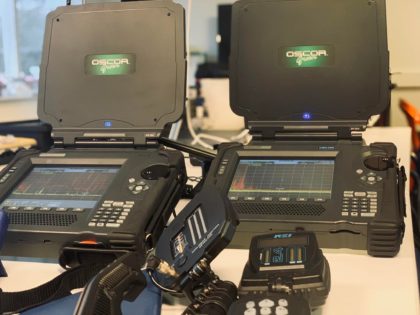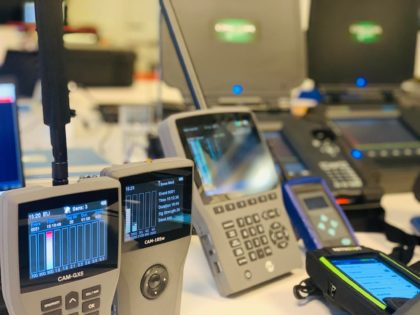In an era where technology pervades every aspect of our personal and professional lives, the threat of electronic surveillance has become increasingly real. Technical Surveillance Countermeasures (TSCM) is a critical field dedicated to detecting and neutralizing illicit surveillance devices that may compromise sensitive information, privacy, and security.
Whether you’re a corporate executive, government official, private citizen, or attorney handling sensitive cases, understanding TSCM and its value is essential in protecting against covert eavesdropping and data theft.
This article will explore what TSCM entails, how it works, who needs it, and why it’s more relevant today than ever before.
What Is Technical Surveillance Countermeasures (TSCM)?
TSCM, also known as “bug sweeping,” involves the systematic search for, identification of, and neutralization of electronic surveillance devices and methods. These include:
- Hidden microphones
- Covert video cameras
- GPS trackers
- Wiretaps
- Compromised Wi-Fi networks
- Keyloggers
- Other electronic eavesdropping tools
TSCM services are conducted by trained professionals using sophisticated equipment to detect both active and passive surveillance threats in physical spaces, telecommunications systems, and digital networks.

Common Threats That TSCM Detects
TSCM is not just about hidden microphones—the spectrum of threats it addresses is vast. Some common devices and methods include:
- RF (Radio Frequency) Bugs: These transmit audio or video signals to a remote receiver.
- Wired Microphones: Hardwired mics hidden in office furniture, phones, or ceilings.
- GSM Bugs: Devices that use cellular signals to transmit audio.
- GPS Trackers: Often placed on vehicles or assets to monitor movement.
- Laser and Infrared Eavesdropping Devices: Used to detect vibrations through windows.
- Compromised Network Devices: Routers, computers, or phones infected with spyware or keyloggers.
- Hidden Cameras: Miniature cameras disguised as smoke detectors, USB chargers, or wall outlets.
How TSCM Services Work
TSCM is a detailed process involving several layers of detection and analysis. Here’s what a typical TSCM sweep might include:
1. RF Spectrum Analysis
Detects unauthorized radio signals, including those from wireless bugs and hidden cameras. TSCM professionals use RF detectors and spectrum analyzers to identify unusual transmissions.
2. Physical Inspection
Experts conduct a manual search of rooms, furniture, electronics, and infrastructure for physical surveillance devices. They look for tampering, odd wiring, or suspicious items.
3. Thermal Imaging
Used to identify devices by their heat signatures, especially those concealed within walls or objects.
4. Non-Linear Junction Detection (NLJD)
This technology detects semiconductors in electronic components—helpful for finding powered-off or dormant devices.
5. Telephone and Network Analysis
Checks landlines, VoIP, and digital communication systems for taps or malware. Investigators also assess IT networks for vulnerabilities and data leaks.
6. Acoustic Leakage Testing
Identifies if sound can travel through HVAC ducts, walls, or floors, allowing for indirect eavesdropping.
7. Environmental Debriefing
After the sweep, clients are briefed on findings, vulnerabilities, and recommended improvements.
Who Needs TSCM?
TSCM services are not just for government agencies. Many organizations and individuals can benefit from regular sweeps:
1. Corporations
To protect intellectual property, strategic plans, and executive communications from:
- Competitors
- Insider threats
- Cyber-espionage
2. Law Firms and Legal Professionals
TSCM protects attorney-client privilege and ensures the confidentiality of sensitive litigation or settlement discussions.
3. Government and Diplomats
TSCM is essential to safeguarding national security and classified information.
4. High-Net-Worth Individuals and Celebrities
To prevent paparazzi, stalkers, or adversaries from exploiting their private lives.
5. Private Investigators and Security Consultants
To ensure their own operations and those of their clients are secure.
6. Hotels and Meeting Venues
Especially when hosting high-level business or political meetings.

Why TSCM Matters More Than Ever
With advancements in miniaturization, wireless technology, and digital networks, surveillance devices are:
- Smaller: Tiny devices can now be hidden in everyday items.
- Cheaper: Surveillance equipment is widely available online.
- Easier to Deploy: No special skills are needed to plant bugs or cameras.
Simultaneously, the value of the information that can be stolen has increased:
- Trade secrets
- Legal strategies
- Executive decisions
- Personal health and relationship data
Breaches can lead to financial losses, reputation damage, legal exposure, and even national security risks.
Legal and Ethical Considerations
TSCM professionals operate within legal frameworks to ensure their work is ethical and compliant. This includes:
- Operating with client consent
- Avoiding illegal surveillance themselves
- Following wiretap and privacy laws
- Maintaining confidentiality of findings
Hiring a licensed and certified TSCM provider ensures that the investigation is conducted responsibly.
TSCM vs. IT Security: What’s the Difference?
While there is overlap, TSCM and IT security serve different but complementary functions:
- TSCM focuses on physical and electronic eavesdropping devices in the environment.
- IT Security focuses on protecting computers, networks, and digital assets from hacking, malware, and data breaches.
For full-spectrum protection, both services should work in tandem.
Selecting a TSCM Provider
When choosing a TSCM professional, consider:
- Certifications and Licensing (e.g., training from REI, Espionage Research Institute, or ASIS)
- Experience with similar environments
- Discretion and professionalism
- Use of modern, up-to-date equipment
- A clear post-sweep report with recommendations
Conclusion
Technical Surveillance Countermeasures (TSCM) is no longer a luxury reserved for government agencies and intelligence firms. It is an essential service in today’s data-driven, hyper-connected world. Whether you’re protecting business secrets, legal strategies, or your private life, TSCM can help ensure that your environment is free from unauthorized surveillance.
Investing in a TSCM sweep isn’t just about preventing eavesdropping—it’s about reclaiming your privacy, protecting your assets, and maintaining peace of mind in a digital age where threats are increasingly invisible.



